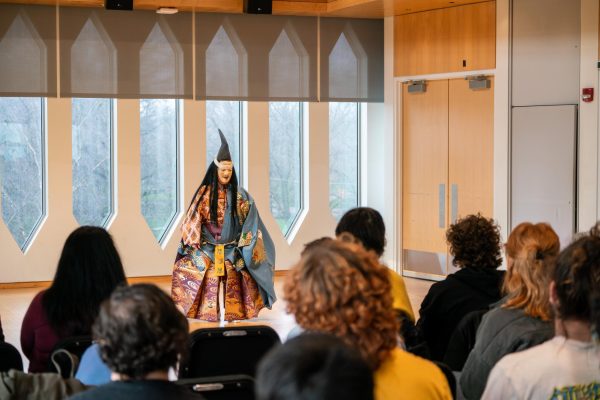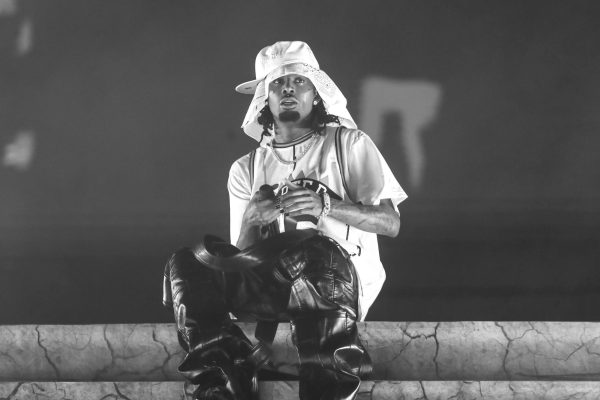Open Mic Culture Provides Performance, Community
The lights go dim and the night begins with the sound of the emcee announcing the first act — welcome to the open mic. Here, you’ll see the creative headspaces of students come to life on the stage through slam poetry, diary readings, a capella covers, instrumental pieces, and original songs. Deep down, everyone is nervous to share their work — yet they still summon the courage to do exactly that.
The open mic is a positive atmosphere in which people can exercise their right brains, and where artists of all backgrounds can perform in a safe, low-pressure environment. Oberlin is lucky enough to have one held at the Cat in the Cream every month or so, with other themed nights springing up around campus sponsored by student groups like the Oberlin Folk Music Club and OSlam.
Because Oberlin College can be an intimidating place to share artistic work, a low-stakes performance space is invaluable to students who want to share but are afraid to do so. Thoughts like “Why should I perform the piece I wrote on the violin when a classically trained Violin major can do it better?” and “Why should I recite my poem when a Creative Writing major has written a dozen better ones?” can inhibit students from expressing themselves. The open mic provides platforms for people to approach creative performance with different levels of intensity.
It’s also easy for Oberlin students to have trouble conveying their thoughts because of the school’s high standards for both art and activism — but these anxieties can create a culture of unhealthy perfectionism, which is a detriment to creative work. It is here, at the open mic, where it’s OK to make mistakes.
“I feel that it’s a good outlet for anyone who is a musician on campus,” noted Georgia Heers, a Conservatory sophomore and Cat in the Cream employee. “There are a lot of musicians who are outside the Con that are incredibly talented and don’t have that same outlet to be on stage and have their music heard as Con [students] do.”
For those not enrolled in the Conservatory, finding space to perform or record can be incredibly difficult, making the open mic a valuable resource for College students.
The open mic is also a great opportunity for students to find community.
“I’ve been coming to the open mics since my first semester here,” commented College sophomore Margo Roberts. “I haven’t performed myself, but I feel like I’ve been an active audience member. I think it was a wonderful way to come into the Oberlin community and see how talented everybody was — you can see the variety in the student body and the collective support for it.”
Open mic night also serves as a space on campus that isn’t dominated by straight white men.
“For the POC community, open mic is where we go to bare our souls to the world, whether it be through poetry, dance, or song,” College sophomore Bri Hayes wrote in an email to the Review. “They’re the center for community-building by allowing yourself to open up in front of friends and people you consider family — you’re allowing people to learn something new about you.”
College junior Sarah Gargano commented on the overwhelming male presence in performance spaces, which has always been an obstacle to her efforts to break into the music industry.
“I feel like a lot of music spaces are heavily male-dominated,” she explained over email. “It’s hard to get a word in without some dude showing off some new guitar thing he learned that you could also play just as well — the open mic gives women a space to be listened to without the usual interruption.”
Whether the Cat in the Cream is filled to its maximum capacity or quietly brimming with artists seated along the back, the open mic is a pillar of the Oberlin community that stands for the celebration of identities as a safe performance space. The diversity of acts, accompanied by a multitude of backgrounds, sheds light on student experiences and creative ideas, taking the notion of competition out of performance. It’s a place to bring back the human aspect of music that reminds us all that sometimes, we can forget the lyrics to our own songs.









